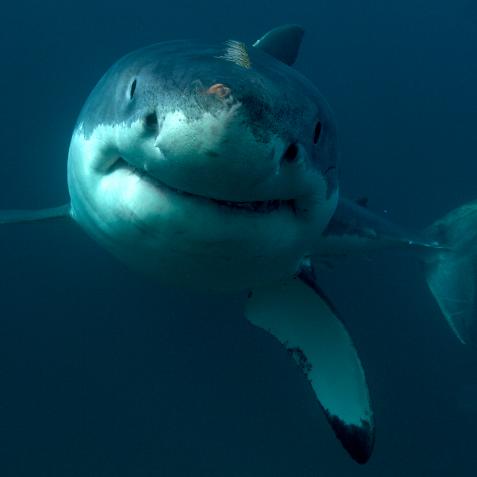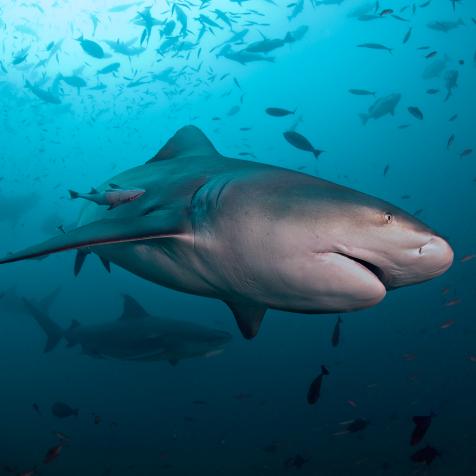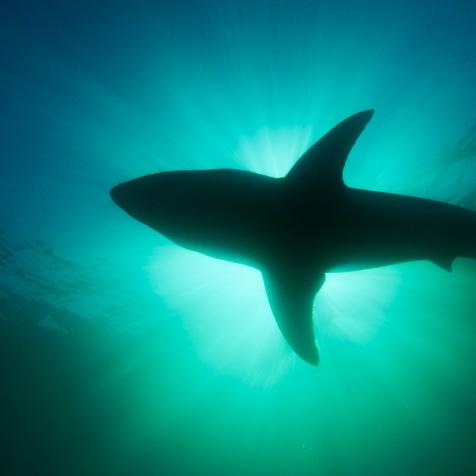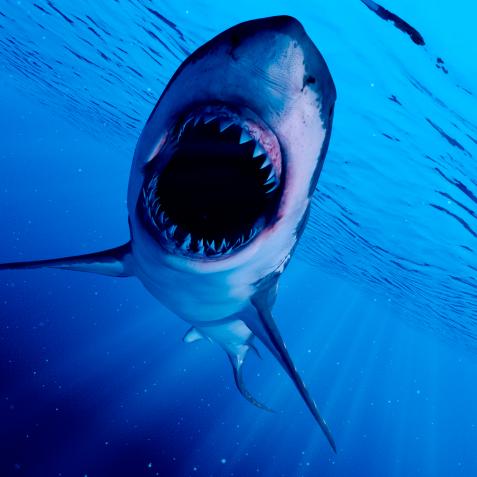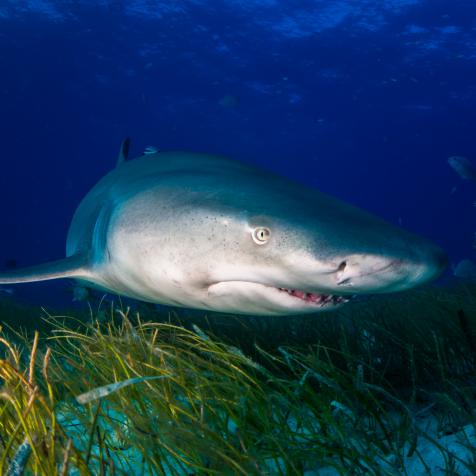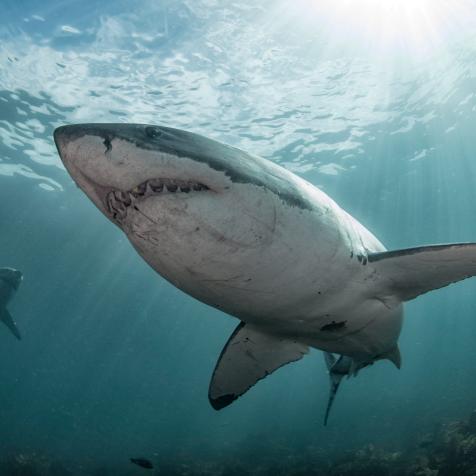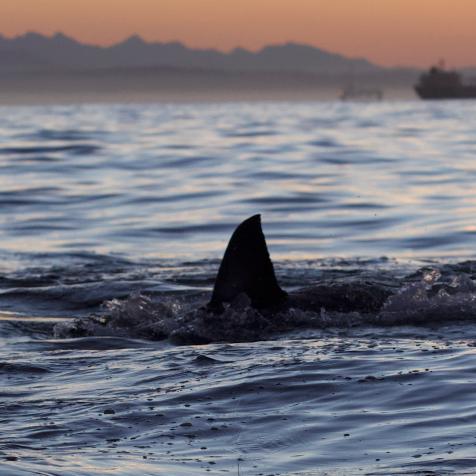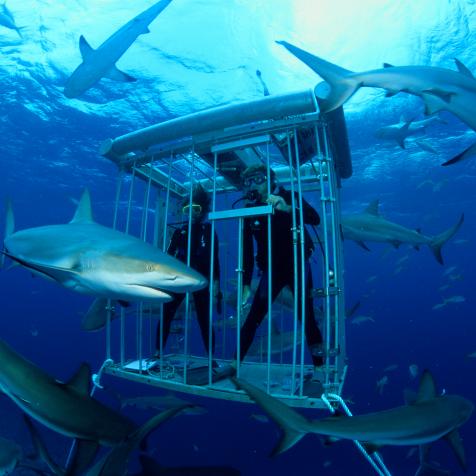
iStock/USO
What Happens When a Great White Can’t Breach?
Fun fact on great whites who never get airborne.
Great white sharks in South Africa are known for their spectacular breaching behaviors. During the amazing display of acrobatic bravado, a great white will literally launch itself out of the water, scooping up a hearty meal (usually a seal) in the process.
Our special "Shark Alley: Legends of Dynamite" followed Dynamite, a young great white, as he struggled to learn how to breach. Although Dynamite was eventually successful in honing his breaching skills, we were left wondering what happens to the great whites in South Africa that never learn to breach–how important is breaching to that population?
We touched base with Shark Week cinematographer Andy Casagrande, who was involved in the filming of Shark Alley, to find out exactly what becomes of the great whites who never get airborne:
Great white sharks are very similar to humans in that they all have unique personalities with different strengths and weaknesses, as well as different attitudes, tendencies and preferences. Some great white sharks are very successful at aerial ambush breaching while hunting seals, while others might not be as good at breaching.
They may take different approaches, such as sub-surface ambush hunting or utilizing darkness and bad visibility to catch seals more successfully. We are just starting to scratch the surface with regard great white shark hunting behaviors and one thing we have learned is that each sub-set population of great white sharks around the world has their own unique hunting tactics and social cultures.
Great white sharks in South Africa tend to use ambush breach hunting very successfully while targeting seals, while the great whites of New Zealand seem to prefer sub-surface hunting tactics–it's still quite a mystery exactly how they hunt in New Zealand.









